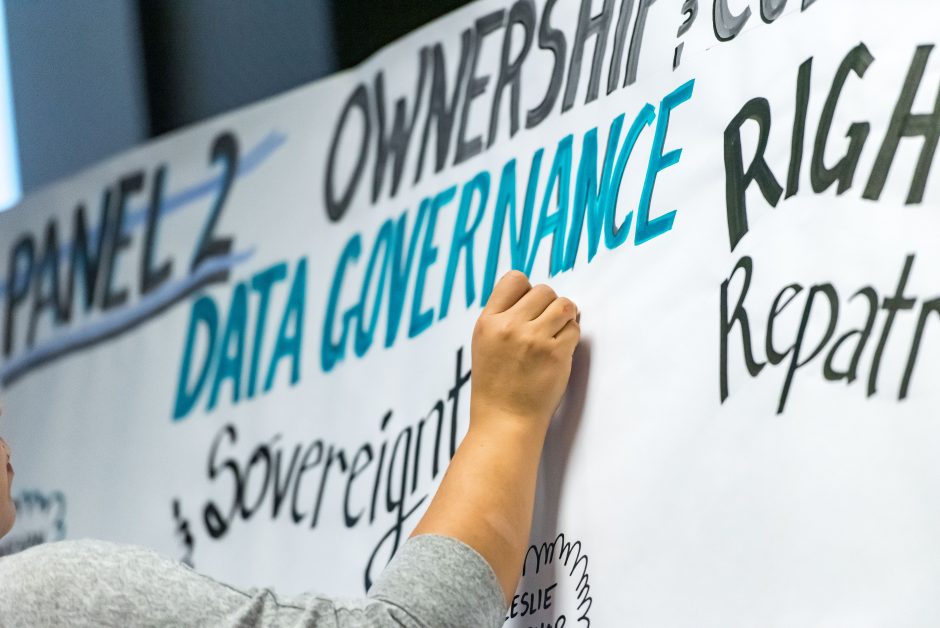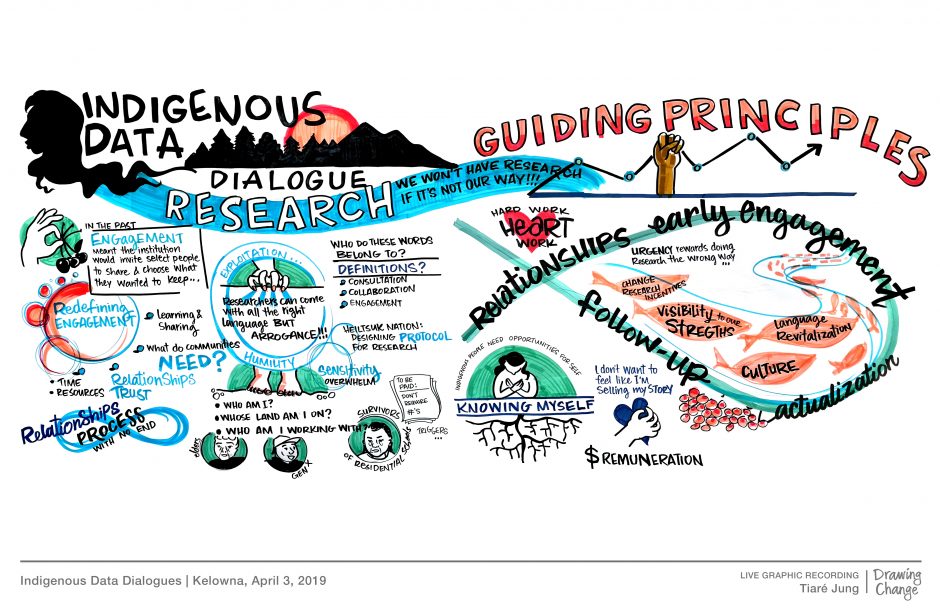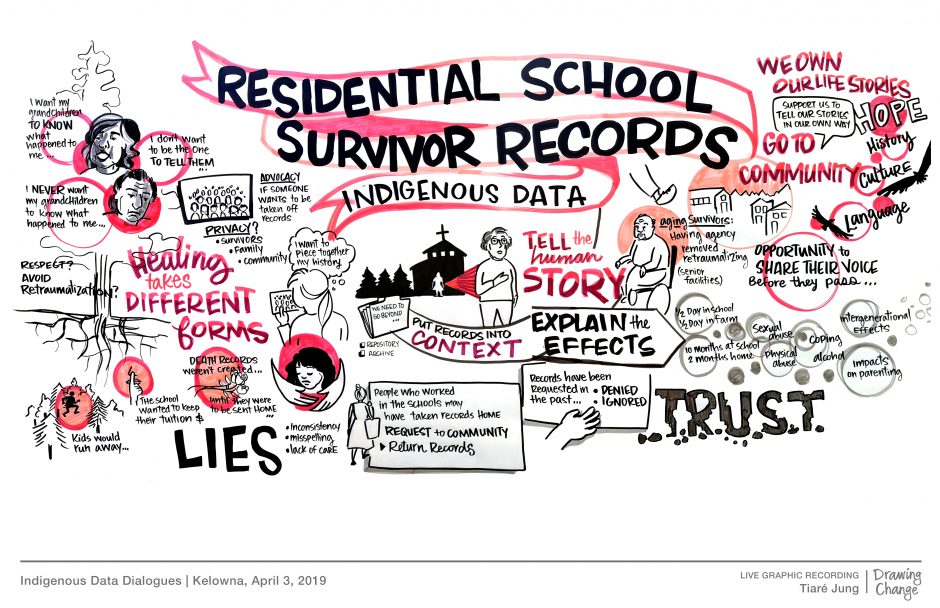Over the past year, the Residential School History and Dialogue Centre (RSHDC) has been involved in several community dialogues across British Columbia.
In partnership with UBC’s Indigenous Research Support Initiative (IRSI), the Centre engaged with Indigenous communities, Survivors, researchers and information professionals to discuss issues around stewardship of Indigenous data, information and records. This dialogue series is supported by an Indigenous Research Capacity and Reconciliation Connection Grant from the Social Sciences and Research Council of Canada (SSHRC). The first dialogue was held at UBC Vancouver in January 2019, the second at UBC Okanagan in Kelowna in April and the third at University of Northern BC in Prince George in May. The fourth dialogue was held November 4, 2019, in Victoria, BC.

Michelle Buchholz drawing at the January 2019 Dialogue.
Through these dialogues the Centre has connected with Indigenous communities, Survivors and Intergenerational Survivors to discuss issues around the stewardship of Indigenous data and records, as well as access protocols for records at the Centre, and at UBC more broadly. Part of these conversations centered around hearing feedback on the RSHDC’s work to date and listening and learning how the Centre can better serve and address the needs of Survivors and their communities moving forward.
A core theme of the dialogue series is the need for institutions to re-evaluate their research protocols with communities, ensuring that their work with Indigenous Peoples is human-centered. At the Centre in particular, its digital systems are guided by community-led directives and the needs of Survivors and their families. These dialogues are intended as not just one-day events, but the start of continued conversations with communities. The Centre is grateful to all who have attended the dialogues and provided feedback and a particular thank you to all Survivors who shared their stories.
“The generosity demonstrated by the Survivors, intergenerational Survivors and community members that attended each of the dialogues undoubtedly shaped the work we were engaged with at each event. It was encouraging to see how willing people were to share their time, their stories, their thoughts and all of their questions with us,” says Tricia Logan, head of Research and Engagement at the RSHDC.

Graphic recording by Tiaré Jung, April 3, 2019.
The dialogues included a Centre-focused stream for Survivors, which contained a presentation of the digital collections system that the RSHDC has been developing over the last two years. This system pulls together records from institutions across Canada that relate to the Residential School System, and it acts as a research portal for those looking for information about schools in British Columbia.
The sessions generated discussion with user experience feedback on the digital system design, and questions of access protocols for sensitive and personal information, as well as hearing what specific needs and concerns different communities have around the use and stewardship of their information.
Follow us on social media or contact the RSHDC at dialogue.irshdc@ubc.ca to learn more about attending upcoming dialogues. A report summarizing the key themes of the January Dialogue is available online.
The Centre also held a dialogue in October on implementing the United Nations Declaration on the Rights of Indigenous People (UNDRIP). To learn more, view the summary report from that dialogue on our blog.
